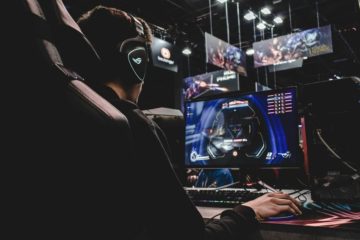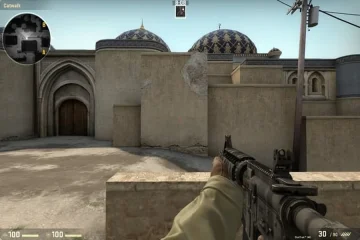Modern esports is developing at an incredible pace, and victories no longer depend solely on individual player skill. Today, analytics, strategy, and coordinated teamwork are at the center of success. Teams need not only to train their mechanics but also to constantly study the game, analyze opponents, and adapt to new conditions. This is why analysts, coaches, and tactical approaches have become so important in the professional environment. In this article, we will explore how data, strategy, and team synergy form the foundation of success in modern eSports.
Analytics as the Foundation of Team Development
In modern esports, data has become the foundation for building stable results. Teams pay attention to every detail: from the individual accuracy of players to the pacing of their opponents. Simply put, analytics helps teams better understand their strengths and weaknesses. That is why various cs2 tips, statistical reviews, and demo analyses have become part of the daily routine of professional players.
Collecting data allows teams to structure information that previously existed only as intuition or vague impressions. Coaches and analysts track the effectiveness of positions, timing of pushes, reaction indicators, shooting accuracy, and error frequency. This helps them see the “bigger picture” of the game, broader than what any individual player can process during a match. As a result, teams can make objective conclusions and adjust their approach when necessary.
Modern analytics is not limited to numbers alone. Teams use visual tools, dedicated software, and automated systems that highlight critical moments in rounds. This helps coaches identify problems faster, and players receive clear recommendations for improvement. Analytics has become not just a tool but a key part of preparation, without which competitive play is difficult to imagine.
Team Strategy as a Driver of Success

Strategy is not just a set of rounds, schemes, or “agreements between players.” It is a complete system that defines the playing style of each team. In top-level rosters, everything is calculated down to the smallest detail: positions, roles, communication, risk planning, and the speed of decision-making. A clear strategy allows the team to stay calm in critical moments and play consistently even under pressure.
Teams spend hours finding the right balance between aggression and safety. Some rosters rely on fast rounds and impressive mechanical skills, while others focus on slow map control and space creation. It is important to understand that any strategy works only when supported by analytics and regular practice.
Strategy is also not static — it constantly evolves. Opponents adapt, game metas change, and players develop new skills. A successful team is one that can quickly adjust to current conditions. This is why strategists and coaches have become so crucial in modern esports organizations.
The Role of Coaches and Analysts in Achieving Results
In earlier years, a coach in an esports team acted more like a mentor, but today they have become a full-fledged part of the roster responsible for the game’s structure. Coaches work with psychology, discipline, communication, and preparation for specific opponents. They help players understand when to simplify their approach and when to take bold risks.
Analysts take on a different part of the workload — deep data breakdown. These are the people who spend hours studying demos, statistics, and opponent tendencies. They identify another team’s strengths, favorite tactics, weak spots, and common mistakes. Based on this, a match plan is created that increases the chances of success even against stronger opponents.
Thanks to close cooperation between the coach and the analyst, the team gains a structured and thoughtful approach to the game. Players understand what is required of them, get clearly defined roles, and know how to behave in difficult situations. This reduces chaos and allows the team to perform with maximum efficiency in every match.
Emotional Stability and Team Chemistry
Psychology has long been one of the key factors in esports success. Even a team with outstanding mechanical skills can lose if it cannot manage stress. Emotional stability helps players avoid burnout, stay calm in crucial moments, and prevent unnecessary mistakes. This is why most organizations work with psychologists who help create a healthy team atmosphere.
Team chemistry is also extremely important. A well-coordinated roster communicates better, resolves conflicts faster, and trusts each other more. When players can calmly discuss problems, find compromises, and support one another, overall performance improves. In such conditions, strategy becomes more effective, and analytical insights bring greater value.
Interestingly, sometimes even a small roster change can strongly influence the team atmosphere. That is why new signings are evaluated not only from a statistical perspective but also in terms of whether the newcomer can fit into the team dynamic. Understanding and emotional balance allow teams to stay competitive for long periods.
Conclusion
Modern esports is a complex system where success depends not only on individual skill but also on the efforts of an entire team of specialists. Analytics helps players see the game deeper and make better decisions. Strategy defines how the team progresses throughout the match, while coaches and analysts ensure stability and development. Psychology and team chemistry, in turn, create the supportive environment needed for great victories.
All these elements form the foundation of success, allowing teams to perform at the highest level. Esports continues to grow rapidly, and the importance of analytics and strategy increases each year. The teams that combine these components effectively have the greatest chance to win in an era where even the smallest detail can decide the outcome of a match.




